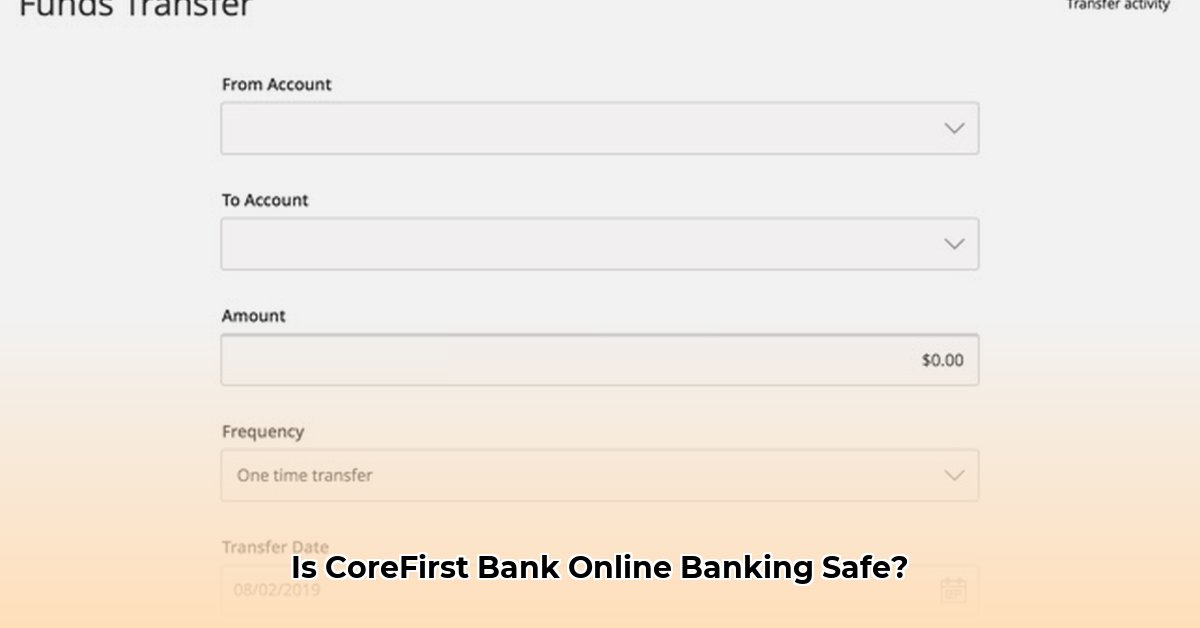
CoreFirst Bank Online Banking: A Deep Dive into Security and Features
Online banking is integral to modern life. We manage finances, pay bills, and transfer funds digitally. But how secure are these platforms? This review assesses CoreFirst Bank's online banking, examining its security, features, and user experience. We'll present both strengths and weaknesses, offering actionable recommendations for the bank and its customers. For comparison with other banks, check out CD rates.
CoreFirst Bank's Security: A Multi-Layered Approach
CoreFirst Bank employs a multi-layered security system, incorporating firewalls (acting as protective barriers) and robust SSL encryption (a strong digital defense against unauthorized access). Their system aims to exceed industry standards. However, is this enough in today's ever-evolving threat landscape? Do these measures truly provide impenetrable security? The answer, unfortunately, is nuanced. While these are essential safeguards, the dynamic nature of cyber threats necessitates ongoing vigilance. Even robust systems can be vulnerable, highlighting the need for a layered approach.
User Experience and Account Management
Managing finances through CoreFirst's online platform is generally intuitive. Users can transfer funds, pay bills, view check images, and update personal information seamlessly. The inclusion of a budgeting tool, "Money Plan," is a welcome addition. However, while adding a primary account holder is easy, the process for adding secondary owners is reportedly more complex. This complexity could deter users from sharing account access, a feature many find convenient. Streamlining this process is crucial for improving user experience. Does this complexity outweigh the convenience of centralized account management?
Password Security and Authentication
CoreFirst mandates password changes every four months, a proactive measure. They provide guidelines for creating strong passwords; however, reliance on user adherence alone is insufficient. Human error remains a significant vulnerability. The absence of multi-factor authentication (MFA) (using a code from your phone or email for extra verification) is a notable weakness, particularly when compared to competitors' offerings. Would implementing MFA significantly enhance security, justifying the added complexity?
A Balanced Perspective: Weighing the Pros and Cons
Here's a summary of CoreFirst's online banking platform's strengths and weaknesses:
| Pros | Cons |
|---|---|
| Robust security infrastructure (firewalls, encryption) | Reliance on user awareness for password security |
| Convenient account management features | Lack of multi-factor authentication (MFA) |
| Proactive password change policy | More complex enrollment for secondary account owners |
| Free access to internet, mobile, and e-statements | Potential for phishing attacks (user education needed) |
Actionable Recommendations: Strengthening Security
For CoreFirst Bank:
- Enhance User Education: Implement comprehensive campaigns educating users about phishing scams and password security best practices.
- Implement MFA: Prioritize the implementation of MFA across all platforms. This addition would significantly bolster security.
- Invest in Advanced Fraud Detection: Adopt AI-powered fraud detection systems to proactively identify and mitigate threats.
For Customers:
- Regular Password Reviews: Regularly update passwords and avoid reusing passwords across different accounts. Consider using a password manager.
- Account Monitoring: Actively monitor account activity and immediately report any suspicious transactions.
- Vigilance Against Phishing: Exercise caution with unsolicited emails or calls requesting banking information.
Conclusion: Navigating the Ever-Changing Digital Landscape
This review offers a balanced perspective on CoreFirst Bank's online banking platform. However, remember that online security is a dynamic field; continuous vigilance and adaptation are essential for both the bank and its customers. The bank's commitment to transparency and ongoing security improvements will be key to maintaining customer trust and confidence.